Dona Wells vividly remembers when abortions were illegal. When women had little choice after their contraceptive failed.
When some took their chances on dangerous abortions performed by amateurs or even themselves.
That could become reality again in her home state of Kentucky.
“I think we’ve just come in a full circle,” said Wells, who worked at Kentucky’s first recognized abortion clinic in 1974 – one year after Roe v. Wade legalized abortions nationwide.
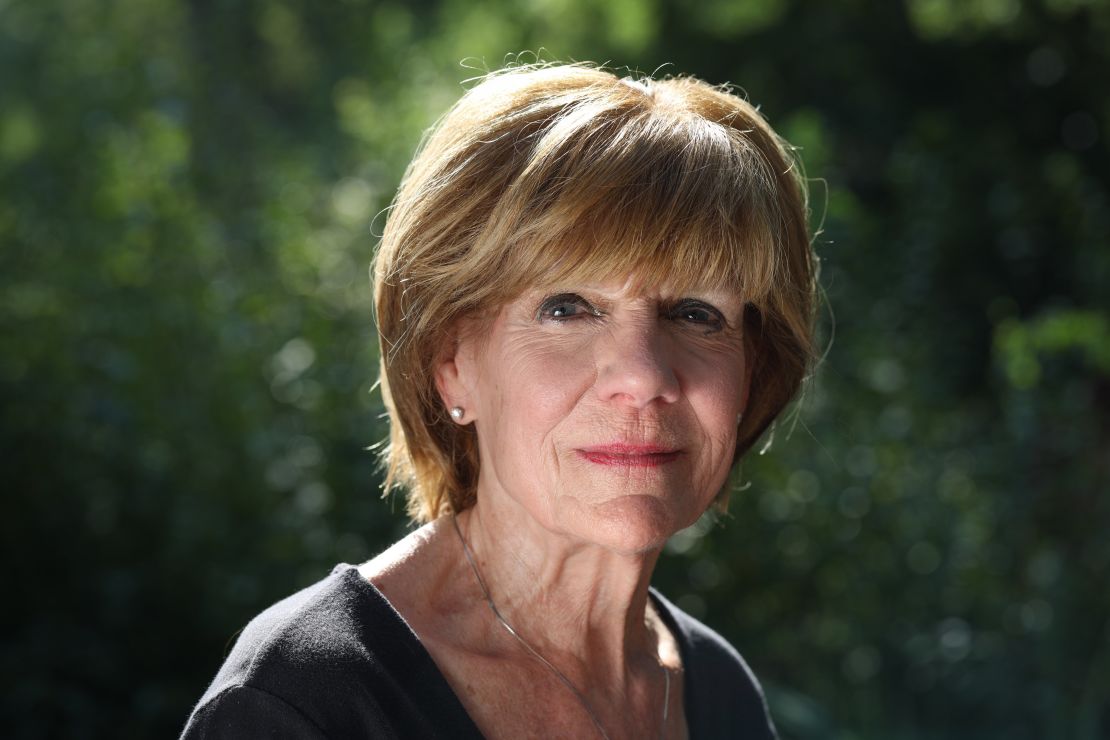
Yet states across the country have added more restrictions on abortion access and clinics. And one by one, clinics have shut down under the weight of hefty regulations, threats to doctors’ safety and violence.
In Kentucky, the only abortion clinic still standing is the EMW Women’s Surgical Center in Louisville – co-founded by Wells in 1981.But the state is threatening to shut it down, claiming deficiencies in its licensing paperwork.
That would make Kentucky the first state with no abortion clinics.
Now, a federal district judge is considering whether the state’s requirements are constitutional. And that decision could get appealed all the way up to the Supreme Court – spurring implications for women nationwide.
The showdown at Kentucky’s last clinic
The sun is barely up this Saturday morning, and 24 women are heading to the EMW Women’s Surgical Center for their abortions. They vary widely by age and race, arriving in cars ranging from clunkers to luxury vehicles.
As each woman speedwalks to the front of the clinic, she faces a gauntlet of protesters holding giant posters of aborted fetuses.
“Murder in the first degree!” one protester screams. Another pleads, “Honey, change your mind. Darling, you don’t want to do this.”
David Street drove more than two hours from Kentucky Mountain Bible College to confrontthe women with his sign: “Babies are murdered here.”
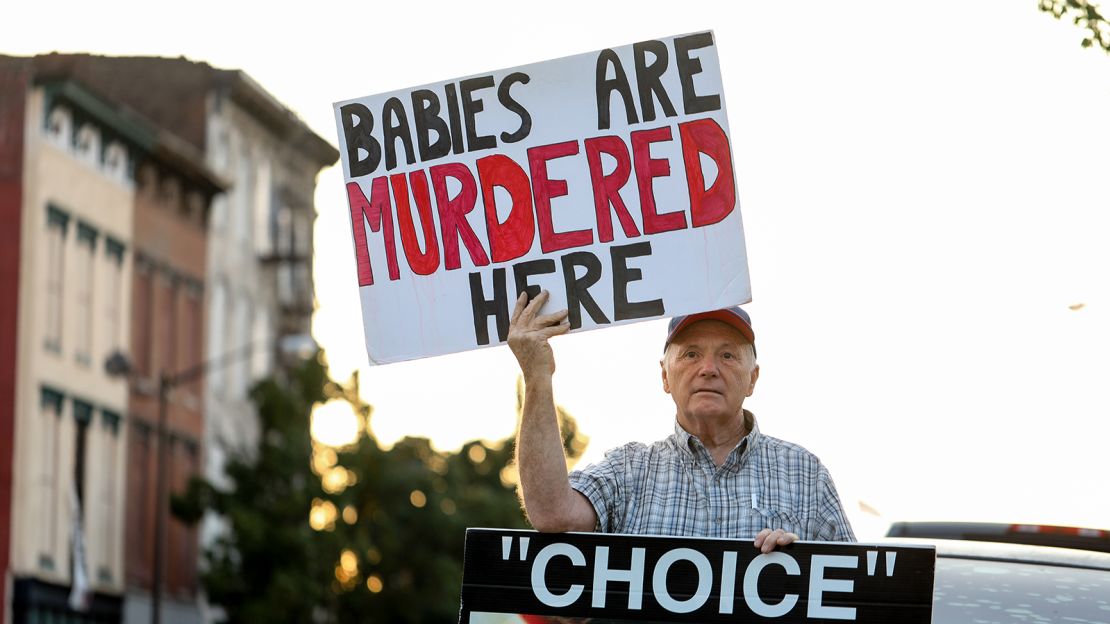
“I don’t protest. I stand for life,” the theology professor says.
He doesn’t mind waking up at 3 a.m. for the 150-mile road trip from Jackson to Louisville because he said the progress is real: clinic after clinic is shutting down.
“There were five abortion mills in Kentucky when we started back in the early ’90s. And now the Lord has answered – this is the last remaining abortion mill, not only in Louisville, but also in Kentucky,” Street says.
“The conscience is being raised. People are embarrassed over the fact that this sin and murder has gone on.”
‘You’re going to hell!’
A few yards away from the protesters, Emory Williamson tries to ignore the vitriol hurled at him. As a volunteer escort, he acts as a shield between the protesters and patients, helping ensure the women get to the clinic door safely.
“You’re going to hell!” a protester once screamed as Williamson walked with a client. Another told escorts to stop bowing down “to lesbian feminists.”
Williamson, who is white, says he was once called “a reincarnation of a plantation slave owner” after escorting a black couple to the clinic. He’s also had his feet stomped on by protesters enough times that he had to buy steel-toe Timberland boots.
“They could literally push me on the ground,” he said. “But I’m not to respond with any anger or any emotion, because that’s what they want.”
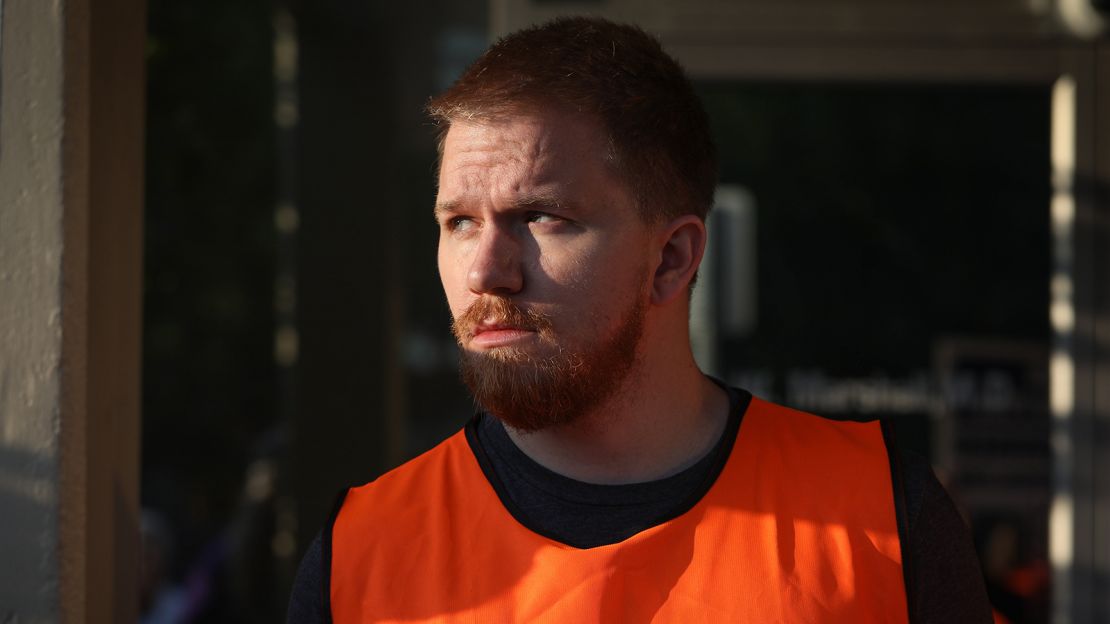
The 31-year-old said he became an escort after hearing horror stories about what friends endured when they tried to walk into the clinic.
“I cannot even imagine what that is like. Especially as a male, I cannot imagine what that is like,” Williamson said. “So many of them (protesters) are white men. I want to be a voice of reason on the other side.”
Williamson said he’s baffled by how often protesters invoke religious songs and prayers during the protests.
“They’ll sing the ‘Ave Maria’ song a lot, and they’ll do the Lord’s Prayer a lot. I grew up in the church, so I’m familiar with all of it,” he said.
“I just can’t imagine that the Jesus I grew up with believing in that. The Jesus I grew up with would be walking with the client. I grew up knowing that Jesus was about compassion and love and understanding. He was always willing to be with those who might be dealing with hardships in life – and being able to always walk beside them.”
But the protests do create converts. Donna Durning is living proof of that.
She’s stood outside EMW clinic every morning, five days a week, for the past 21 years. The petite redhead offers brochures about abortion alternatives and clutches a decade-old photo of a girl named Donisha – a tangible reminder of her success stopping abortions.
“I’ll show you one that’s been saved,” she said, proudly holding up the photo. “This is my little namesake, Donisha. Isn’t that cute?”
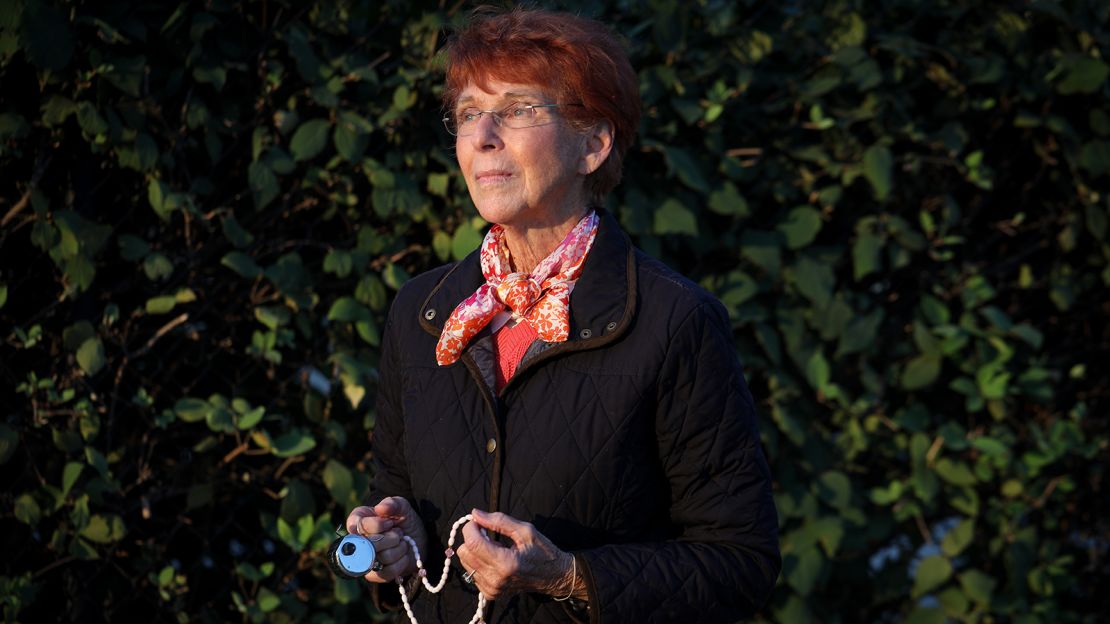
She recalled the day Donisha’s parents came to “the abortion mill” 18 years ago, overwhelmed by the financial implications of having a fifth child.
“I talked to them, and I was able to take her to get a free ultrasound,” Durning said. “And when she saw that baby on the screen, heard its little heartbeat, she knew that she could not abort.”
Now, Durning’s 21-year mission is only one abortion clinic away from becoming reality in her state.
“I would rejoice. I’d be very happy, because that means no more babies are going to be ripped apart and thrown in the garbage,” she said.
“I’ll stay until it closes – and then some. I will initiate a great big block party with all the pro-lifers that want to come, and we’ll have a celebration that they’ve closed.”
The dwindling number of abortion clinics
What’s happening in Kentucky is representative of a nationwide trend: The number of abortion clinics is declining.
In 1996, the country had 452 abortion clinics, according to the Guttmacher Institute, which advocates for reproductive rights.
In 2005, that number had dropped to 381. And by 2014, the latest year of available data, the number had dwindled to 272.
“Since 2014, there have been even more clinics that have closed,” said Rachel K. Jones, principal research scientist at the Guttmacher Institute.
Guttmacher defines abortion clinics as facilities where half or more of the patient visits are for abortion services. There are other clinics that provide abortions, called nonspecialized clinics, but fewer than half of the patient visits there are for abortion services.
Abortion rights advocates say “TRAP” laws – or targeted regulation of abortion providers – have resulted in fewer abortion clinics.
“Some TRAP laws require that abortions be performed in far more complicated and expensive facilities than are necessary to ensure the provision of safe procedures,” the Center for Reproductive Rights said.
“These requirements may require costly and unnecessary facility modifications, which may not even be feasible in existing facilities, or impose unnecessary staffing requirements that are expensive or impossible to meet.”
Jones said there’s another issue: finding enough doctors willing to perform abortions. Since 1994, anti-abortion extremists have killed at least 11 doctors and attempted to kill 26 doctors, the National Abortion Federation said. Arsonists have set fire to at least 39 clinics, and several others have been bombed.
“If a physician retires, it might be difficult to find another physician who is willing to take over, potentially putting their life and the lives of their family members at risk – risk of harassment, risk of stigma and risk of violence,” she said.
Six states are now down to one abortion clinic – Kentucky, Mississippi, North Dakota, South Dakota, West Virginia and Wyoming, according to the Guttmacher Institute.
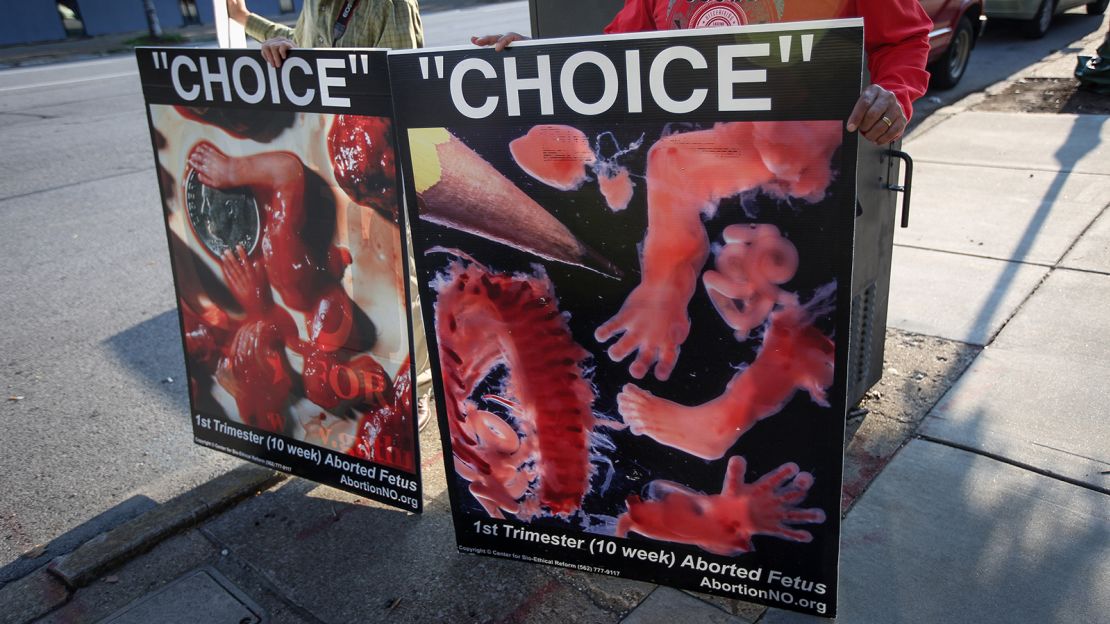
Kentucky could become the first with zero abortion clinics due to alleged shortcomings with the Louisville clinic’s “transfer agreement.” Transfer agreements are written agreements between an abortion clinic and a hospital, saying the hospital agrees to accept the clinic’s patients in case of emergency.
In the past, the EMW Louisville clinic’s transfer agreement was signed by the head of a hospital’s obstetrics/gynecology department. But now, the state says that signature isn’t good enough – the clinic needs the signature of a hospital president or CEO. And so far, no local hospital president nor CEO has agreed to sign a transfer agreement.
“The standards are just outrageous,” said Wells, who co-founded the EMW Louisville clinic.
Wells and other critics of the state law say it’s unnecessary because federal law requires emergency rooms to accept anyone who shows up – with or without a “transfer agreement.” They believe the restriction is actually an attempt by Gov. Matt Bevin’s administration to eliminate abortion services in Kentucky.
But Doug Hogan, spokesman for the Kentucky Cabinet for Health and Family Services, said the regulations are about women’s health and safety.
“The Bevin Administration is working diligently to protect the health, welfare and lives of women in Kentucky,” Hogan said in a written statement.
“The statutory requirement for transfer agreements – which was enacted in 1998 and not questioned for 19 years – is necessary to ensure women have access to life-saving procedures in the event of an emergency.”
When asked why EMW’s transfer agreements were considered adequate in years past, but not this year, Hogan and a state health department spokeswoman did not respond to multiple requests for comment.
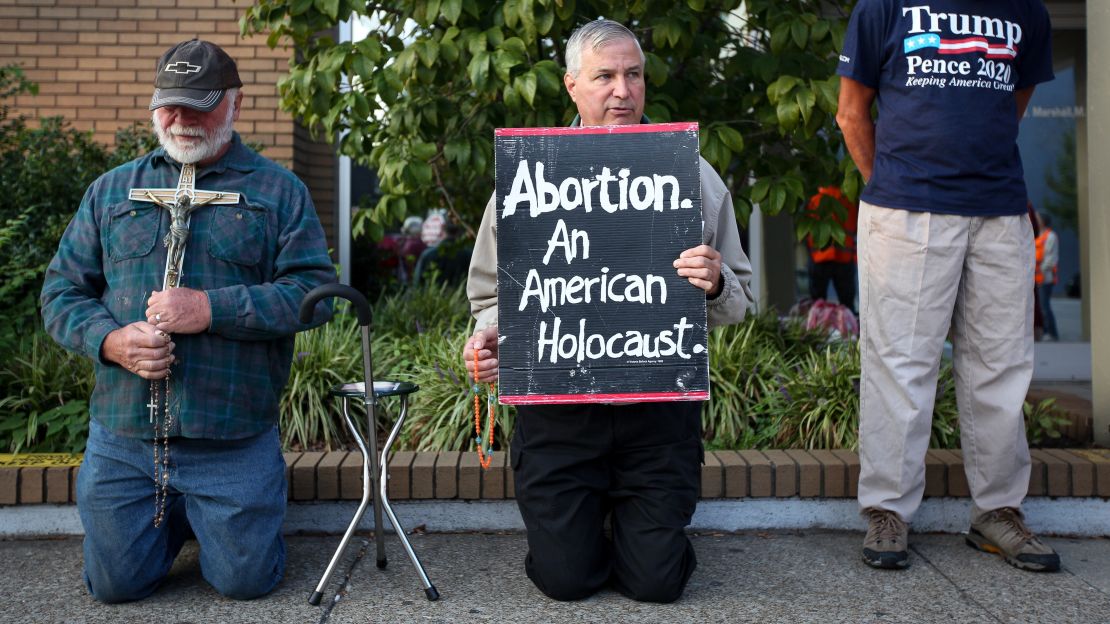
A federal judge is now considering whether requiring a hospital transfer agreement – and a related ambulance transport agreement – are constitutional. Whichever way US District Judge Greg Stivers decides, the outcome could get appealed, potentially to the Supreme Court.
And that could have a chilling effect across the country.
The growing pleas for help
The emails, phone calls, and texts rarely stop in Marcie Crim’s office. She’s the executive director of the Kentucky Health Justice Network, a non-profit that helps Kentuckians pay for abortions and the related travel expenses – which keep rising as the number of clinics keep declining.
“Just this morning we bought a ($662) plane ticket to fly someone to New Mexico,” said Crim, who became KHJN’s first executive director last year.
The group regularly helps fly clients to New Mexico because there, women can get abortions after 22 weeks of pregnancy. In Kentucky, abortions are legal until 20 weeks after fertilizationor 22 weeks from the first day of the last menstrual period.
That limitcan make a huge difference – especially since the results of genetic abnormality testing might not come back until well into the second trimester.
“The majority of folks who get a late-term abortion are for high-risk (cases) or for fetal abnormalities,” Crim said.
Those aren’t the only reasons for late-term abortions. In February, Crim helped fly another woman to New Mexico after she had been repeatedly raped by the same attacker.
“She finally figured out she was pregnant. She didn’t realize how far along she was because she was raped repeatedly,” Crim said. The woman tried to get an abortion at the EMW Louisville clinic, but was denied because it turned out she was 24 weeks pregnant.
“So we flew her to New Mexico … that was really heartbreaking,” Crim said. “We get cases of rape and incest more often than we’d like.”
The majority of KHJN Support Fund clients are Kentuckians who can’t afford to get abortions in their own state due to “constant barriers,” Crim said.
One of those barriers is Kentucky’s 24-hour waiting period – meaning a patient must consult with the clinic at least 24 hours before the procedure.
It’s not a big deal for women who work salaried jobs and can easily take time off work, drive across the state and pay for a hotel during that waiting period. But it’s a huge deal for hourly employees who have no sick days and don’t even have a car to drive across the state to get to a clinic.
Kentucky does allow the 24-hour consultations to take place by videoconference, but that still doesn’t help rural, impoverished women, Crim said.
“We like to think everyone has high-speed internet access in their homes, but not everyone does,” she said.
While the KHJN helps women with transportation and lodging costs, the most common request is for help paying for the actual procedure.
About 95% of KHJN’s clients go to the lone clinic in Kentucky, where a medical abortion (for up to nine weeks of pregnancy) is $750. The cost of an abortion near the legal limit is $2,050, Crim said.
And the need for KHJN’s financial aid, which is funded by donors, would “skyrocket” if 100% of the clients had to go out of state, Crim said.
She recalled the haunting words of a 16-year-old who couldn’t afford to travel and was denied an abortion in Kentucky because she was almost 23 weeks pregnant.
“Fine, I’ll just do it myself,” Crim recalled the teen saying. “I’ve looked it up online. I can do it myself.”
Crim’s agency managed to find the funding to help the girl get an abortion. But as a woman who has had an abortion herself, Crim said she’s terrified of what will happen if the EMW clinic shuts down.
“It makes me want to cry,” she said. “It takes me to an emotional place, because of my own experience with abortion and trying to put myself in the shoes of somebody who’s pregnant and scared and … feel like they have absolutely no option.”
The options at A Woman’s Choice
Some abortion critics have actually had abortions – and they want to tell other women it’s not the best choice.
“If I could go back and change my decision, I would,” said 36-year-old Nici, who asked that only her first name be used.
“I chose abortion because I didn’t see any other way out. It seemed like my only option.”
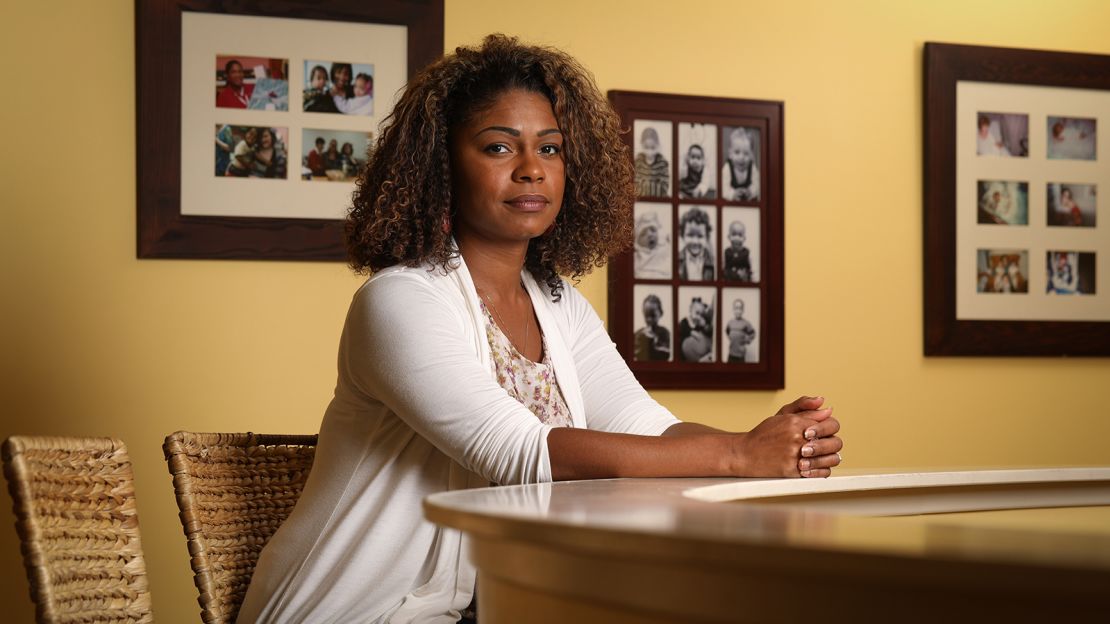
She was about 23 when it happened.
Her boyfriend’s mother paid for the abortion. And for the next decade, Nici said, she suffered a horrific mix of guilt, shame, “cold sweat nightmares and anger – just unexplainable anger.”
“It’s just a really dark place to be in,” Nici said. “It’s all because I took that life, I severed that connection. And you feel it. You know. It’s not just a glob of tissue. There is a connection. I could feel the heartbeat.”
Sherri Churchill’s mother forced her to have an abortion at age 15. For most of the last three decades, she said, the psychological trauma has been relentless.
“We had no idea what the side effects and the outcome would be after an abortion,” Churchill said. “And what I know now that I didn’t know then is abortion hurts women. Abortion psychologically hurts women. And I know that for myself because I went through it.”
Churchill said she tried to ease the pain with drugs, alcohol and physical relationships. “I was in very, very unhealthy relationships, and the drugs and alcoholwas to stuff the pain,” she said.
Now 48, Churchill is a counselor at A Woman’s Choice Resource Center, which counsels women to choose alternatives to abortion.
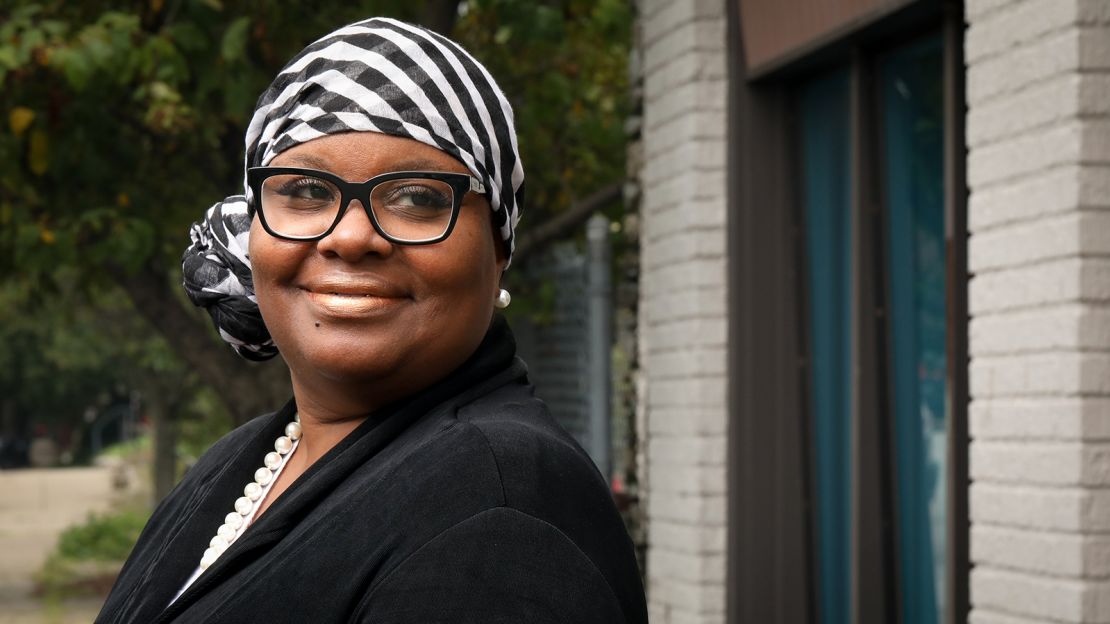
The facility is right next to Kentucky’s lone abortion clinic. A large sign in front of A Woman’s Choice advertises free pregnancy testing, pre- and post-abortion counseling and ultrasounds.
Given its name and proximity to EMW, patients might confuse A Woman’s Choice for the abortion clinic. That’s not a coincidence.
“We’re definitely pro-life,” said Monica Henderson, executive director of A Woman’s Choice and Necole’s Place – a sister facility that offers parenting classes and other life skills courses.
Both facilities are merging this month under a new name, BsideU for Life Pregnancy & Life Skills Center. They’re expanding to a new location, but will keep a facility next to the abortion clinic.
“We located strategically near EMW so that women would know there’s another option,” Henderson said.
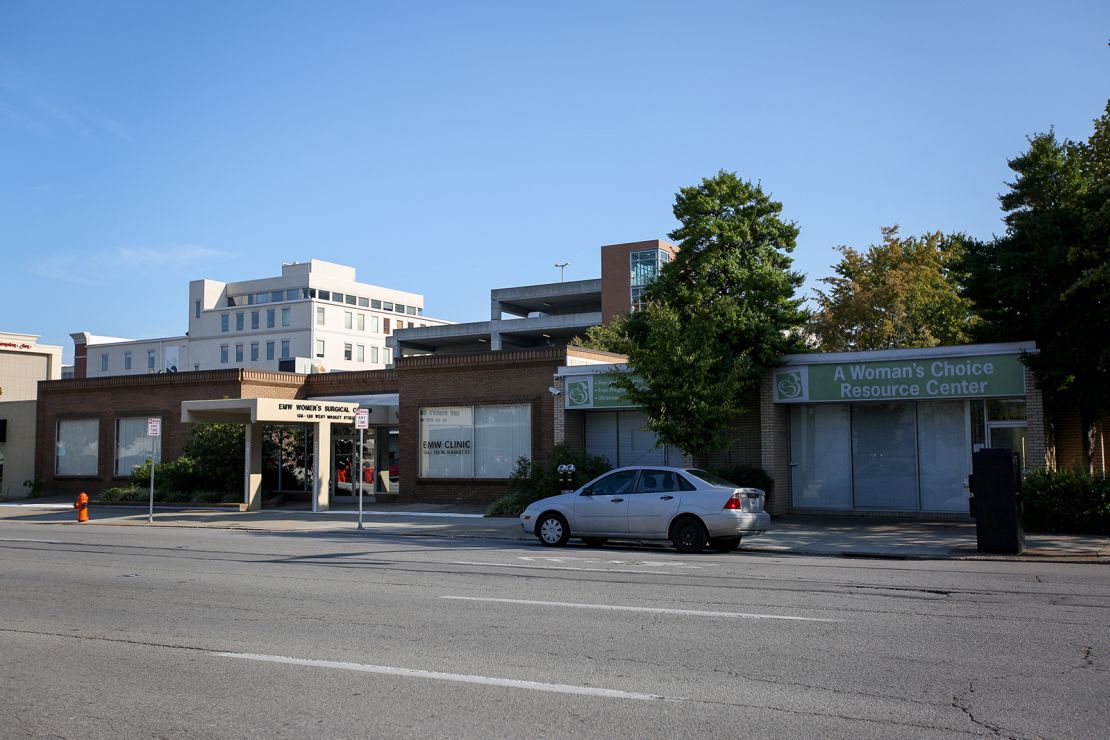
When one client, Cassandra, walked into A Woman’s Choice pregnant and panicked she did not have the means to raise a child.
“I came here with nothing. I didn’t know how I was going to make it work,” said Cassandra, who only wanted to be identified by her first name.
“I didn’t have a chair to sit in when I was pregnant. I came to A Woman’s Choice asking, ‘Do you all have a chair? Can you get me a chair for my house?’ “
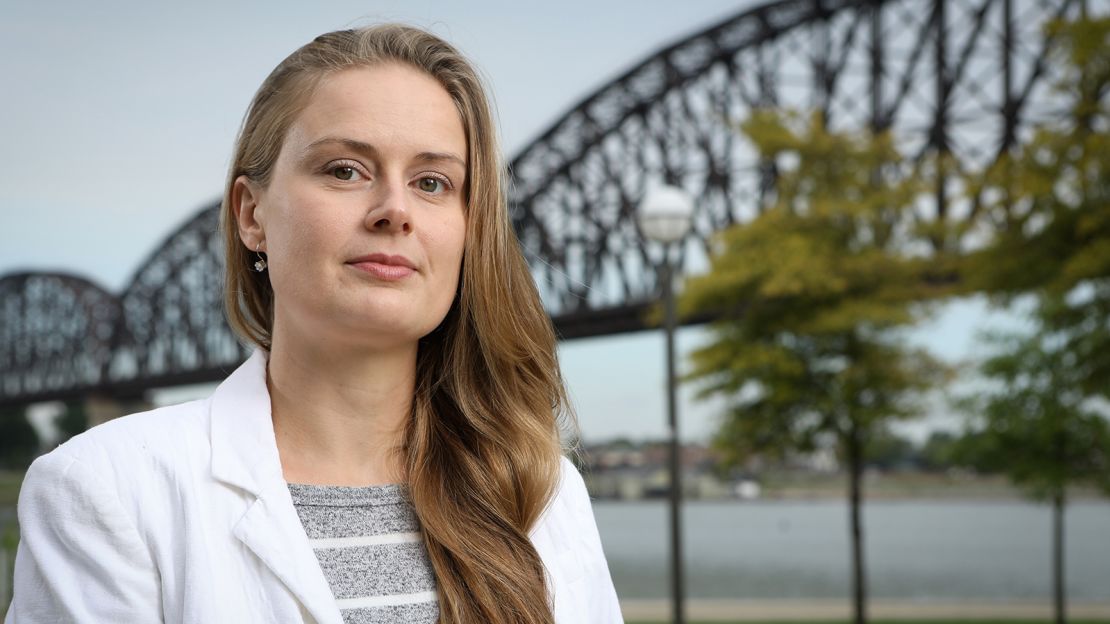
April Hickman was in a worse predicament – she was homeless when she went to an emergency room to take a pregnancy test.
A doctor broke the news: “You’re pregnant. Do you want to be pregnant? … If you don’t, we have a pill that you can take.”
Hickman said she considered it. But that night, she had a dream about a little girl with a bright smile. And the next morning, she went to A Woman’s Choice.
“When I got in for the orientation, it was then that I decided I’m going to keep this baby,” Hickman said. “I took parenting classes to learn how to be a better parent. … I was afraid of having this baby because I screwed up so bad, and I was so afraid. But everybody loved me when I came and needed wipes or Pampers.”
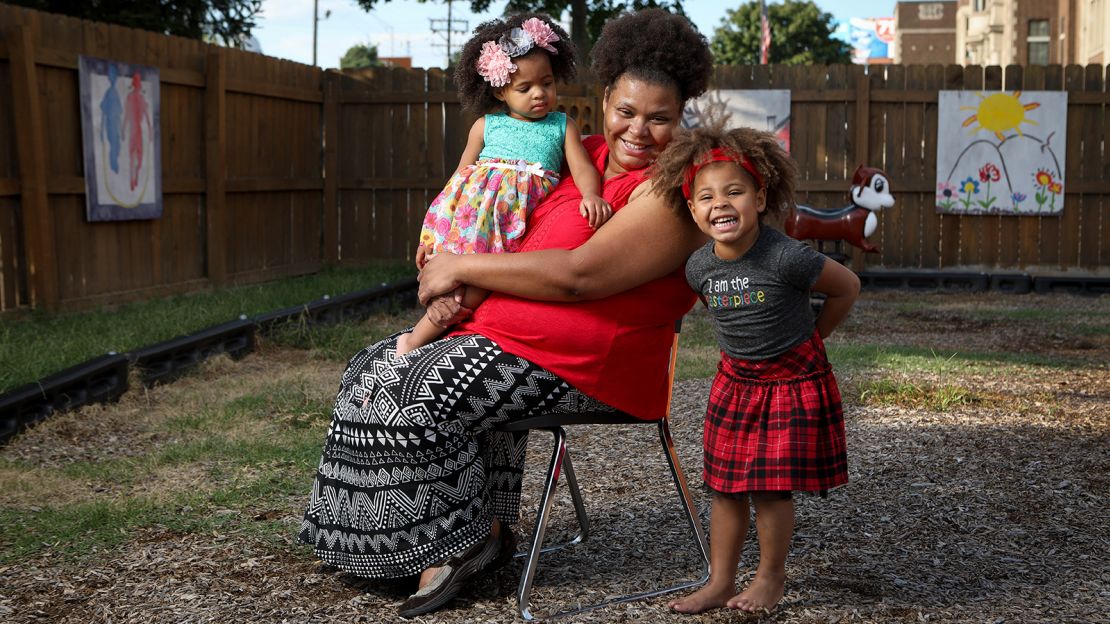
Hickman is now the mother of a 3-year-old girl, Marlee. Cassandra also has a 3-year-old – a son named Theodore, which means “a gift from God.” Both mothers, along with Nici, now help other women at Necole’s Place.
“Coming here helped me enjoy being a mom even more because I know I’m not alone,” Cassandra said. “The responsibility of being a mother is not all on my shoulders.”
Nici and Cassandra declined to say whether they want Kentucky’s last abortion clinic to close. But Cassandra said that outcome would allow her to help more women at Necole’s Place.
“I think we would have more women to support,” she said. “And we’d have to start planning to help more people.”
‘It’s more common than people believe’
Anna Collins, 32, is a successful business owner, homeowner and philanthropist. She says none of that would have been possible if she hadn’t had an abortion.
Collins was 20 years old, working a “very low-level, non-skilled labor job” in a cafe. She made about $9 an hour – barely enough to support herself.
The financial stress was compounded by emotional stress when her boyfriend broke up with her. Shortly after that, she learned she was pregnant.
“We were usingcontraceptives. We were not intending to get pregnant,” she said. “The only thing that I can come up with is that the condom broke. We just didn’t realize it.”
It took Collins several days before she decided to have an abortion.
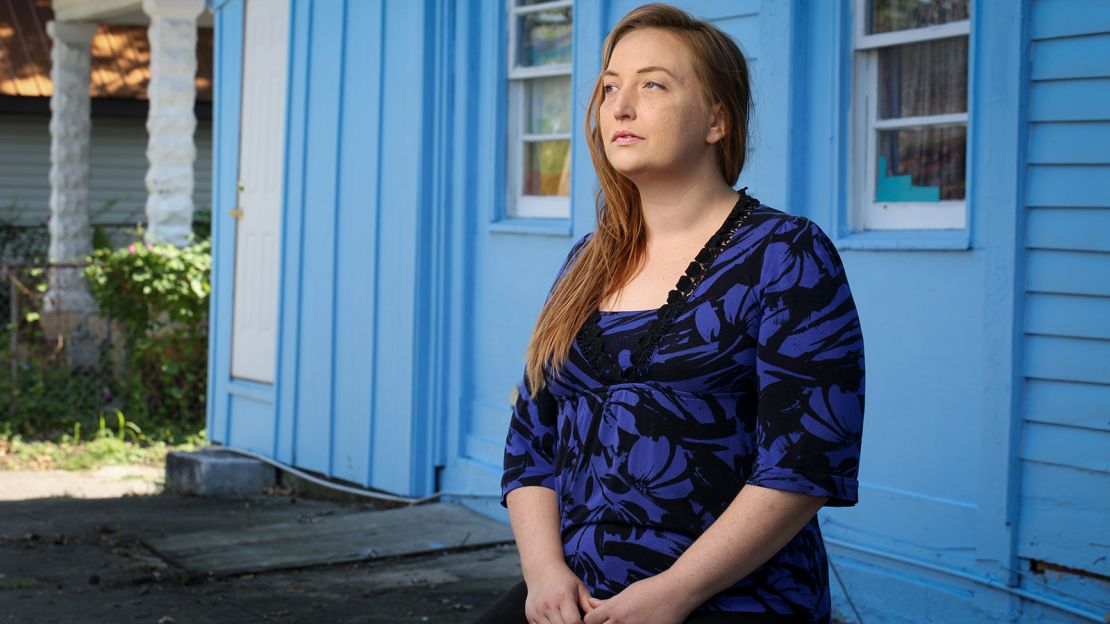
“The longer I thought about it, the more I didn’t want to bring a child into this world that I couldn’t financially support, that I couldn’t emotionally support,” Collins said. “I would definitely have had to go on government assistance at that time.”
So she went to the EMW clinic. And to this day, she says it was one of the best decisions of her life.
“In the last 12 years, I’ve been able to go to massage school, buy a house, start my own business,” she said. “I’ve been able to donate my time and money to organizations that I believe in.”
Collins has housed friends who have fallen on hard times and regularly shelters rescue animals. She used to volunteer as an escort at the EMW clinic, but her massage therapy business is doing so well that she no longer has time to volunteer on Saturdays.
“I think of all the wonderful, beautiful things that I’ve been able and lucky enough to do in life, and I can’t imagine doing any of those with a child – or especially having a child before I was able to go to school,” she said.
Now, she worries the freedom she enjoyed is eroding. Collins said she’s “ashamed” that her state could become the first with no abortion clinics.
“I love my country, I love my state. I want Kentucky to be known for things that I’m proud of, and not for being the first state to take accessibility to abortion away from women,” she said.
According to the Centers for Disease Control and Prevention, more than 5,000 abortions took place in Kentucky and more than 650,000 took place nationwide in 2013, the latest available year of data.
The demographics may be surprising: More than half the women who get abortions are Catholic, mainline Protestant or evangelical Protestant, according to the Guttmacher Institute.
“I think that it’s more common than people believe,” Collins said. “And I think that if people were more open to hearing personal stories, that they would realize how many people they know have had abortions. … If you haven’t had one, you know somebody who has. You just don’t know that you know (them).”
They even include women who have protested outside the EMW abortion clinic. During her time as a clinic escort, Collins said she was surprised to see a woman who had frequently protested walk into the clinic herself.
Collins said she didn’t judge.
“We walk everyone in just the same, whether we recognize them or not,” she said. “I’d like to believe that made her realize that this is something that can happen to anybody.”
‘Shut it down’
Across the state, in rural Warren County, Jennifer Fink sells clothes, furniture and appliances next to a gas station. With seven children, she’s had to get creative about making ends meet.
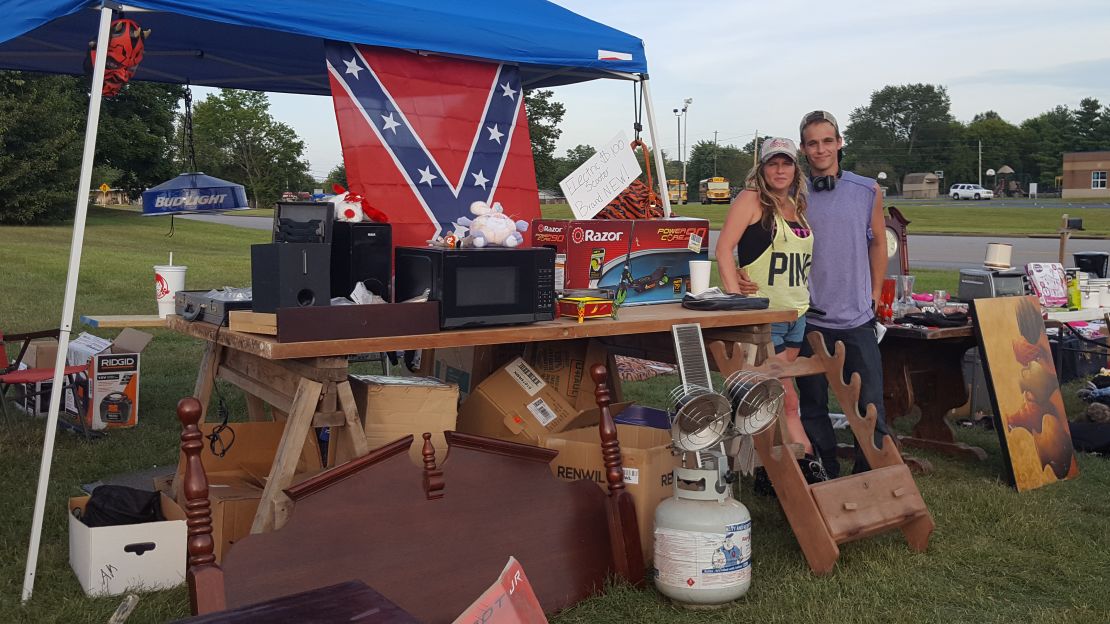
“I had to do what I had to do. I was a dancer for a little while,” she said. “You figure it out. When you love ‘em, and you’re a mom, you figure it out.”
Fink knows how challenging motherhood can be, but she’s thrilled about the possibility her state will have no more abortion clinics.
“I think it’s awesome, because I would consider it murder,” she said. “Shut it down.”
That shouldn’t stop with Kentucky’s last clinic, she said. “I would be happy if all of them were gone, everywhere.”
While opinions run the gamut in both rural and urban parts of the state, Fink’s sentiment is a common one in southern Kentucky.
Fink said she knows contraceptives can fail – some of her own pregnancies were unexpected – but that’s still no excuse for an abortion.
“Don’t have sex if you can’t have a baby,” she said.
The possible end of an era
Before abortion was legalized nationwide in 1973, Dona Wells was already helping Kentuckians get abortions. She shuttled women to the airport so they could fly to New York, where abortions were already legal.
Then, not long after Roe v. Wade, Wells started working as a counselor at Kentucky’s first recognized abortion clinic in 1974.
The demand for services was immense.
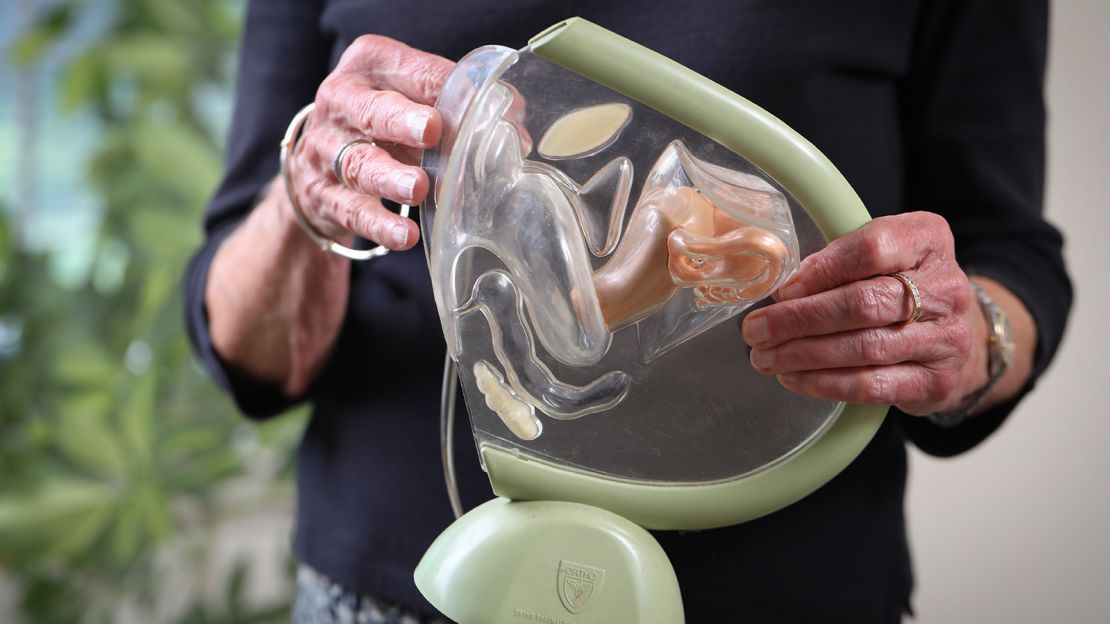
“When I was at RELSCO (abortion clinic), we used to see about 400 patients a month,” said Wells, now 75. “We were the only people doing abortions in Louisville.”
The need was so severe that new clinics popped up across the state. And over the next four decades, Wells counseled thousands of women in several clinics.
“I would say that I have probably … provided abortion services in this country as long or longer than anybody has,” she said.
She retiredfrom her role as executive director at the EMW Louisville clinic in 2006. The clinic still performs about 250 abortions per month – roughly half of which are medical abortions.
Wells knows she doesn’t fit certain stereotypes about abortion rights activists. She’s a mother of two who never wanted to have an abortion herself. She grew up Southern Baptist and attended Baptist and Catholic colleges.
“I took a lot of theology and religion and philosophy in school,” she said. “I do still call myself Southern Baptist.”
But she said religion and abortion rights aren’t mutually exclusive.
“I think this is the Christian thing to do. We’re all put here on this Earth to help each other,” Wells said. “And that’s what I’m doing. That’s my mission in life – to be a support system for whatever people need.”
Wells said when she co-founded the clinic in 1981, “little did we know that they were going to figure out how to restrict (abortions) in a million different ways.”
Wells said Roe v. Wade doesn’t need to be overturned to eliminate legal abortions in the country. All it takes is more state restrictions.
“They’re trying to restrict it in so many ways that you won’t be able to get an abortion,” she said. “There will be nobody – no clinics, no doctors, nobody to do abortions.”





